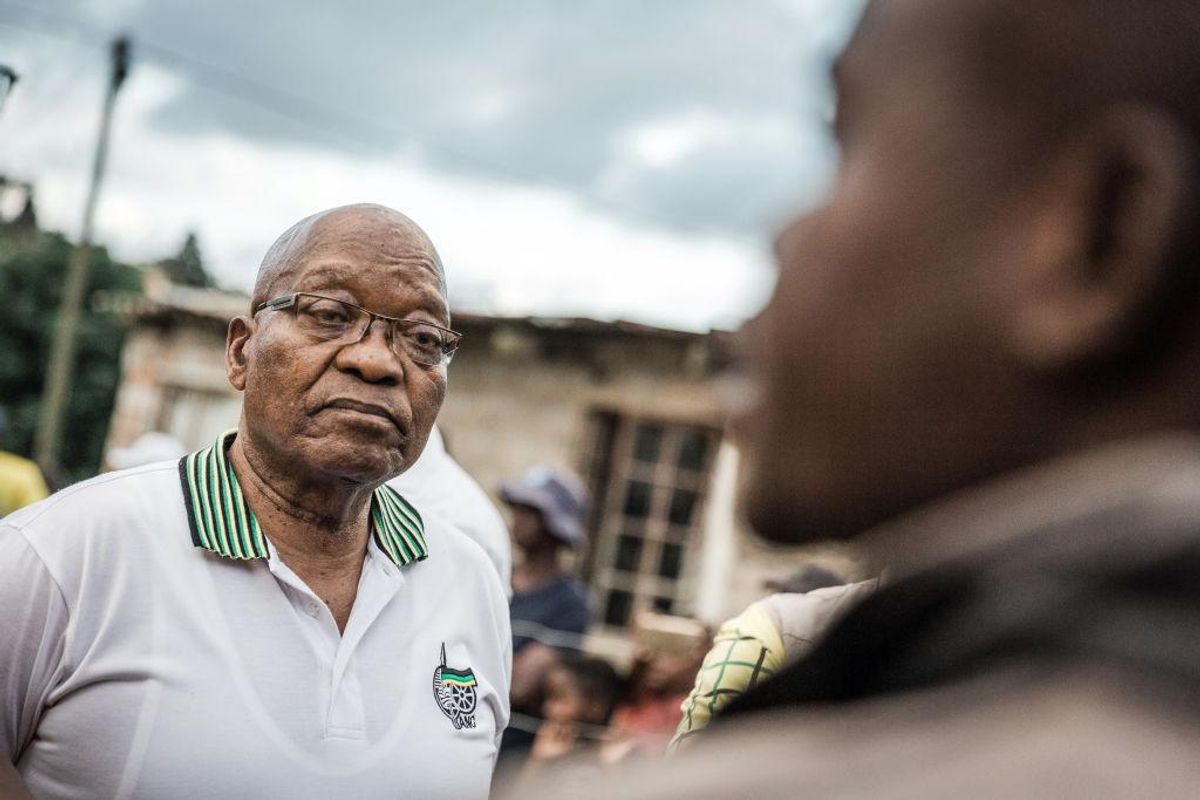
Former South African President and former president of the ruling party African National Congress (ANC) Jacob Zuma listens to local resident Sandile Ngcobo during a door to door campaign visit in Shakaskraal township, on April 16, 2019. - Even if Zuma is not candidate, he is campagning for ANC party. South Africans will go to the polls for national elections on May 8, 2019.
Photo by RAJESH JANTILAL/AFP via Getty Images.


